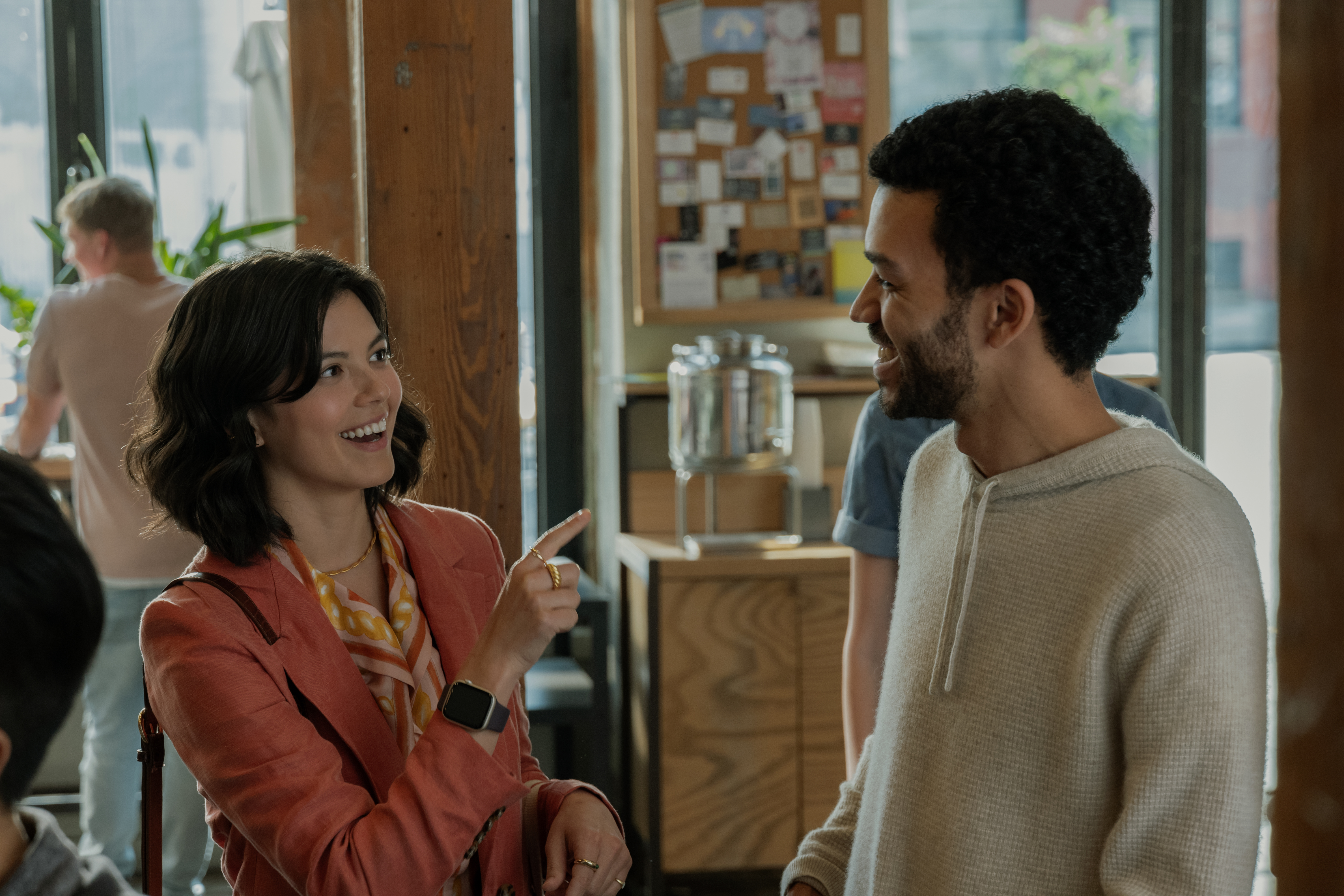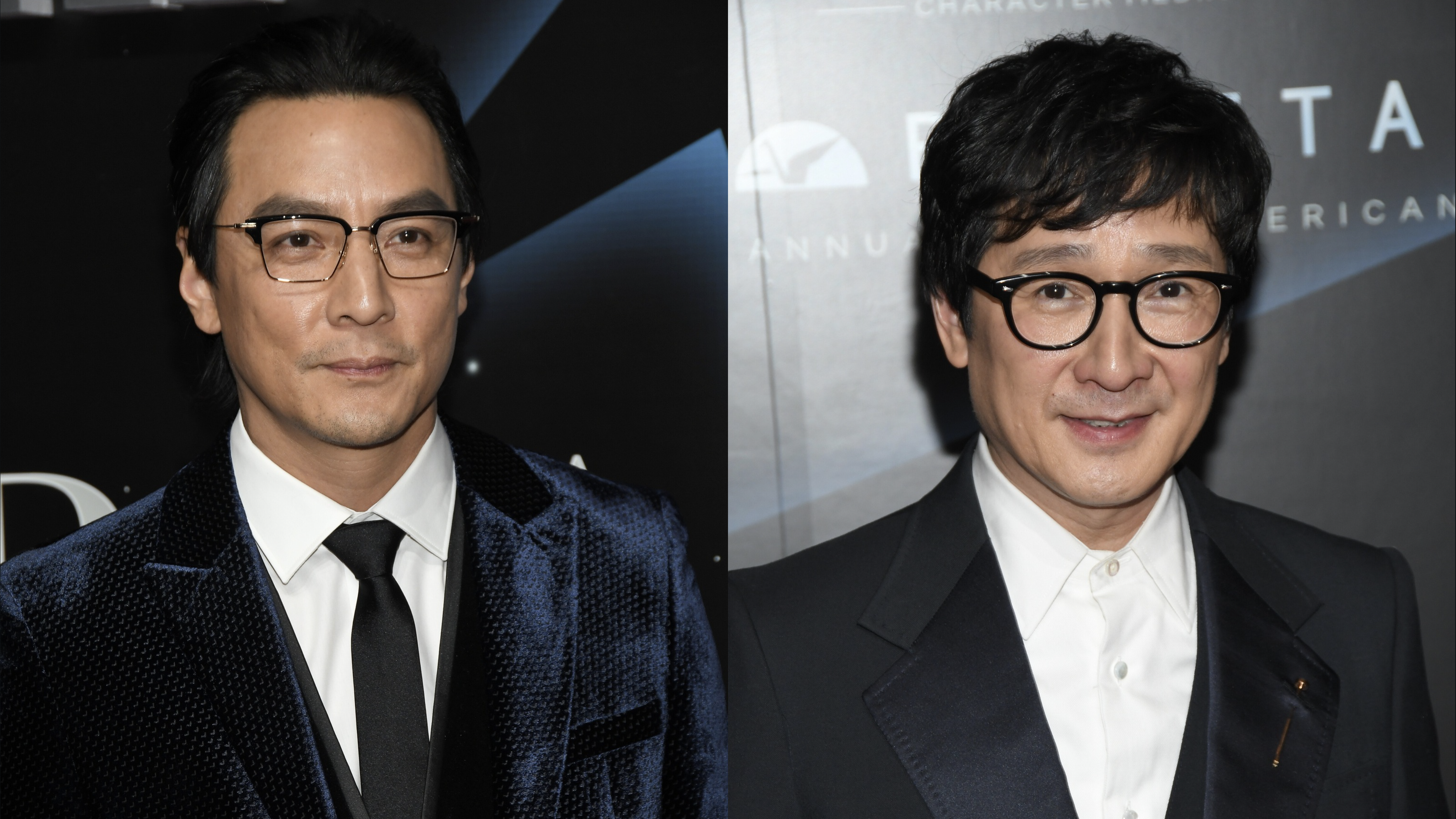
In Kobi Libii’s directorial debut, “The American Society of Magical Negroes,” to put it lightly, the veil is lifted. That veil in question being the intricacies of race relations and stereotypes in the 21st century, when everyone seems hyper aware of it all, but no one actually knows how to navigate it with the right mix of seriousness and levity. Enter this particular film, which follows Aren (Justice Smith) who is recruited to a magical society of “negroes,” (an antiquated and ultimately offensive term, the film makes sure to point that out), whose job it is to make sure that white people don’t get too uncomfortable during their day-to-day lives, and start taking frustrations out on minority groups. Aren gets his first assignment posing as a graphic designer to keep tabs on a cranky white coworker (Drew Tarver), and winds up meeting the lovely Lizzie (An-Li Bogan). Soon, this dramedy becomes a romance, as Aren and Lizzie toe the line of just friends or something more?
Lizzie is Bogan’s first lead role, having previously appeared as various background characters in projects like “After Yang,” “Love Life,” and “Elementary,” and she fits right in.
Character Media sat down with Bogan to discuss her experience taking on the role of the leading lady.

Character Media: In three words, how would you describe “The American Society of Magical Negroes”?
An-Li Bogan: It’s funny, heartwarming, nuanced.
CM: What was your favorite part of working on this project? What drew you towards the film to begin with?
AB: I read the scripts and was auditioning a lot at the time. It was a really good script, and I really related to the character. That’s so special and rare when you read an audition and you really want it. And then my onset experience was so wonderful. So, even though I love the actual content, my experience on set was my favorite part.
CM: The film tackles conversations about race relations, what it’s like to be black in America, gender inequity, but it’s also a romcom. Were you ever afraid of those genres kind of clashing?
AB: I wasn’t. They kind of seamlessly integrated one another in this script.
CM: Definitely. It’s a very human story and things can be funny and also serious. The film also being a romcom almost enhanced it.
AB: Yeah, I really think it was smart what Kobi Libii did. Which, a lot of the political themes of this play into the romance. [Romance] is ultimately about connecting with somebody. So, I felt like the different themes really used each other.
CM: Speaking of Kobi, what was it like working with a first-time feature director?
AB: I can’t believe it’s his first because it was my first feature, too. He was so professional, so generous and really took care of us. We were able to really have [deep] conversations and bring ourselves to the script that already existed.
CM: And what about your castmates, Justice Smith and Drew Tarver, what was that like working with those two? I feel like the dynamic between Lizzie (Bogan) and their characters are very different, but they also parallel each other.
AB: That was very surreal. I don’t know if they know this but I knew about both of them in their individual acting careers before I met them. I was just trying to seem as cool as possible for the majority of this shoot.
CM: Diving more into the film, tell us about Lizzie. How would you describe her?
AB: I just reread the script the other day, just to do a refresher. She’s described as a late-20s Ivy League grad, who always kept up with her peers academically, but, [Kobi] literally wrote, “Felt like she was faking the smoking jacket.”Lizzie didn’t feel too far away from where I was when I was cast.. Being a young person breaking into the professional world, a lot of her experiences feel close to home. The dynamics of moving your way up, but trying not to ruffle feathers. She’s a young professional, [a] good designer. Trying to make her way through this big, corporate company.
CM: Did you draw from any of your previous experiences when you were trying to embody [Lizzie]?
AB: Yeah. Most of my jobs haven’t been acting jobs, so I’m very familiar with that experience of you’re at work doing work, but half of your energy is [spent] managing how you behave and how other people are responding to you and their emotions. That felt really natural, and I was already on this big set with a bunch of professional people. It was pretty easy to tap into that attention she has on what’s going on so she can respond and survive best.
CM: Like you said, it’s your first time on this huge set and you have all these people who are seasoned professionals. It’s walls up.
AB: It’s not just “How good am I at my job?” But it’s, “Will they like me? Will they feel comfortable around me?”
CM: What do you want the audience’s biggest takeaway to be after watching? Everyone is so different, so for each individual there is going to be something different. But what was important that you got across on that screen?
AB: I don’t have a big takeaway that I hope people have because of what you just said. People have such individual experiences when they’re watching a film, especially when a film has racial and political themes. Going into the film, I hope that people have an open mind, and, if you can, stay curious.
CM: Did you have something that you took away? Something that stands out to you when you got off the set, you finished filming this and you had that experience — your biggest takeaway?
AB: Personally, I was just relieved that I could do it, that I could be in a film. Not be fired and not crash and burn. I really enjoyed the experience and I felt like I did my job well. That was a huge thing for how I saw myself. I’m so excited to do it again.






